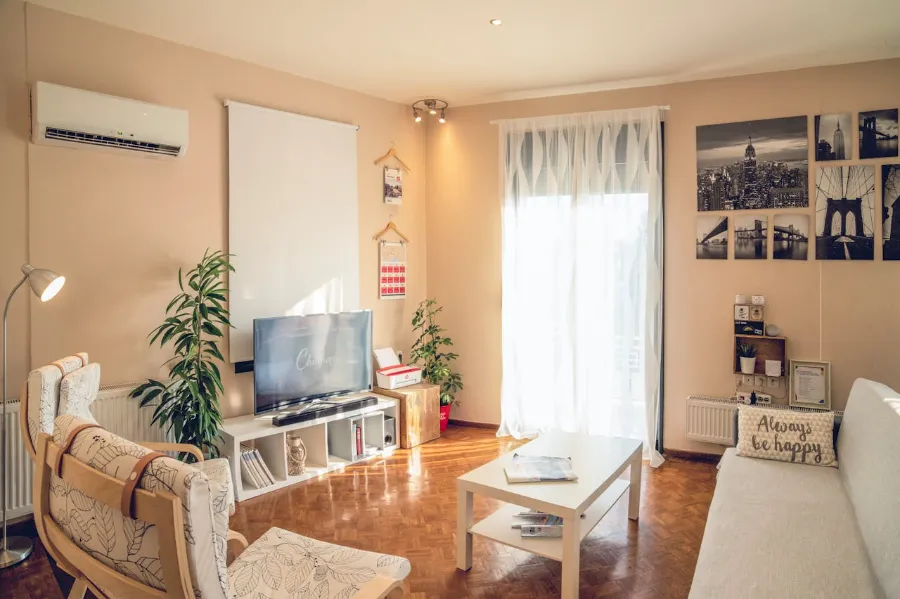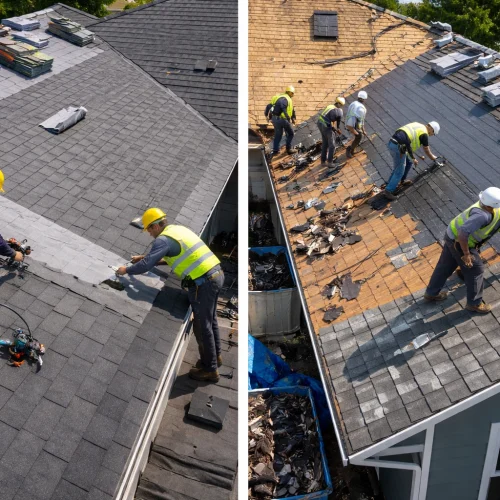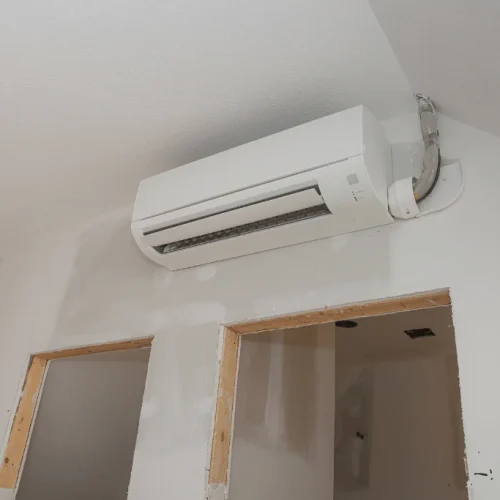
It’s easy to ignore small problems when your heating or cooling system still works. A faint noise. A slight drop in airflow. Maybe your energy bill seems a bit higher than usual. You make a mental note, then forget about it because the air still blows and the house feels fine.
But what seems like a minor issue today can turn into a costly problem later. HVAC systems don’t break overnight. Small signs are often early warnings of more serious damage developing behind the scenes. Waiting too long to take action can lead to high repair bills, reduced efficiency, or even full system failure.
Addressing small problems early keeps your home comfortable and your equipment in good shape. It also helps avoid emergency repairs during the hottest or coldest days of the year, when technicians are booked and costs are higher. The good news? You don’t have to know what every noise or warning sign means. You just need to know when to call a professional.
Small Problems Often Point to Bigger Ones
A weak airflow could be more than a dirty filter. A strange noise might mean a worn-out motor or a loose belt. Short cycling — when your system turns on and off too frequently — could mean something’s wrong with your thermostat, refrigerant levels, or even your compressor.
These kinds of issues don’t go away on their own. When left untreated, they often create extra strain on your HVAC system. That wear and tear can snowball into major damage, increasing your repair costs and cutting down the system’s lifespan. Fixing a belt or capacitor early costs far less than replacing a full compressor or blower motor later on.
This is where professional help makes a real difference. That’s why it’s smart to contact the best air conditioning company in your area when something feels off. They’ll inspect your system thoroughly, identify what’s causing the issue, and help you address it before it becomes a major repair. Getting expert input early on can save time and money while keeping your system running the way it should.
Many companies also offer maintenance plans that include seasonal inspections and priority service. These programs are helpful because they keep small issues from slipping under the radar. Having a technician look over your HVAC system before summer or winter gives you peace of mind and helps avoid surprise breakdowns when you need cooling or heating most.
Even if your system seems to be working, small inefficiencies add up over time, in both cost and performance. That’s where the next risk comes in: energy waste.
Energy Efficiency Drops with Poor Maintenance
When HVAC components aren’t working properly, your system has to work harder to do the same job. That leads to higher energy bills every month. Something as small as a clogged filter, low refrigerant, or a blocked vent can cause the system to run longer or more frequently.
You might not notice the increase right away, but over time, the costs add up. A dirty coil, for example, reduces cooling efficiency and forces your unit to use more electricity. The extra wear can also lead to earlier part failure, which means more repair visits and more money out of pocket.
Fixing these smaller problems right away helps your system run more smoothly. It cools or heats faster, uses less energy, and holds up better over time. Many homeowners don’t realize how much their monthly bill could drop just by addressing minor HVAC issues.
Delays Can Lead to Complete System Failure
Some small issues are signs of serious trouble. A flickering thermostat screen, for instance, might point to an electrical short. A bad smell could mean mold inside the ducts or even burnt wiring. These kinds of problems can damage the system beyond repair if they’re not taken seriously.
When a component like the compressor or blower motor fails, you’re often faced with major costs, sometimes thousands of dollars. In worst-case scenarios, you might need to replace the whole unit. That’s not something most people want to deal with during peak summer or winter, when temperatures are extreme and HVAC companies are busy.
Responding early to warning signs helps you avoid that outcome. Even a 10-minute phone call with a technician can give you direction and help you decide what to do next. Catching problems when they’re small often means fewer parts, less labor, and shorter service visits.
Small HVAC Issues Affect Indoor Air Quality
HVAC systems don’t just heat or cool the air — they help control what’s in it. Dirty filters, clogged ducts, or low airflow can trap dust, pollen, pet dander, or even mold in your home. Over time, this can impact the health of anyone inside, especially kids, seniors, or people with breathing conditions.
Poor humidity control from HVAC issues can also create problems. When the air is too damp, mold and mildew spread faster. When it’s too dry, it can irritate your throat, skin, and eyes. These issues are often tied to small system malfunctions that go unchecked.
Keeping your HVAC system clean and working properly supports better indoor air quality, which matters in every season.
Regular Checks Help You Stay Ahead of Problems
The best way to prevent large-scale HVAC repairs is to stay consistent with maintenance. Set reminders to replace filters every few months. Pay attention to airflow, strange sounds, or odd smells. Watch for sudden increases in your energy bill — these are often the first signs of a problem.
Have a technician inspect your system twice a year: once in spring and again in fall. These seasonal visits catch early wear and help your system run at its best when you need it most. Some companies offer affordable maintenance plans that make it easier to stay on schedule.
Create a simple checklist or set alerts in your calendar. Staying ahead of HVAC problems isn’t about doing everything at once; it’s about checking in regularly and fixing small things before they grow.
Putting off small HVAC issues might seem like no big deal, but the cost of waiting can be high. A little attention now can prevent breakdowns, improve efficiency, and protect your comfort at home. When something doesn’t feel right, take it seriously. Staying proactive saves time, money, and stress in the long run.
Even if your HVAC system appears functional, minor issues like reduced airflow or unusual noises can be early warning signs of bigger problems. Addressing them early can prevent costly breakdowns later.
Weak airflow, short cycling, strange noises, or flickering thermostat screens may seem minor but often point to issues like refrigerant imbalance, electrical faults, or failing motors.
When components aren’t working efficiently, your system runs longer or more often to maintain temperature. This increases energy usage and raises your monthly bills over time.
Yes. Small problems, like mold in ducts or electrical shorts, can escalate and damage critical components like compressors or blower motors, potentially requiring full system replacement.
Clogged filters and low airflow can trap allergens and pollutants inside your home. Poor humidity control can also encourage mold or cause dryness, affecting overall air quality and health.
Routine checks help detect and fix small issues early, improving efficiency, avoiding unexpected repairs, and extending the system’s lifespan. Seasonal inspections are especially helpful before peak usage months.
If you notice odd sounds, smells, poor airflow, or sudden spikes in your energy bill, it’s time to call a trusted HVAC technician. Early professional help can save time, money, and stress.













